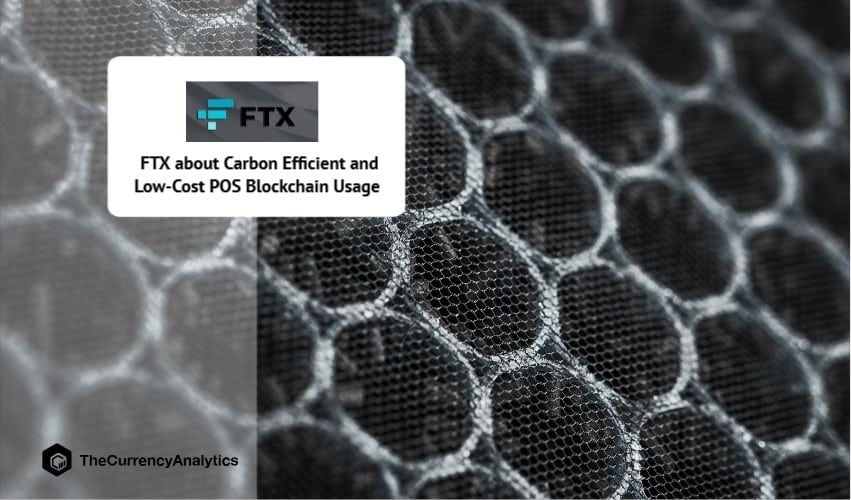
FTX is the most important company in crypto and is revolutionizing the financial industry.
Mark Wetjen, FTX US, Head of Policy/Regulatory Strategy expressed: FTX believes that assessing all policy aspects of the digital-asset industry is appropriate and fair, including the environmental impact of the industry, and so we support a robust and full debate in Congress and in other venues.
FTX is very serious about minimizing our impact on the global environment where we live and work, and as a company we have taken several important steps to ensure this.
First, over 80 percent of deposits and withdrawals to and from FTX platforms use low-cost, carbon-efficient Proof of Stake (PoS) blockchains; even for BTC, most deposits and withdrawals happen via wrappers on energy efficient networks.
On-exchange transactions and transfers (the overwhelming majority of our user activity) do not require public blockchain activity and require only the amount of energy needed to run a web-based trading venue.
By using PoS blockchains for the vast majority of FTX deposits and withdrawals, FTX massively reduces the overall climate impact of blockchains. For the remaining 20 percent of transfers, energy consumption is relatively small and FTX shares with our users in those costs.
Second, FTX has purchased carbon offsets to neutralize environmental costs from our business. FTX estimates that it costs $1 million to take ownership of those costs, and has purchased a total of 100,000 tons of carbon offsets through two providers for $1,016,000.
FTX also created a comprehensive program to focus on the most impactful solutions to climate change possible, and plans to spend at least $1 million per year through FTX Climate.
Third, FTX believes energy consumption by PoW blockchains should be assessed appropriately, which should include consideration of their benefits, an understanding of their differences with PoS networks, and how each type of network is being leveraged and growing.
FTX believes PoS networks will become increasingly important over time, minimizing the industry’s impact; and future mining of PoW tokens increasingly will come from renewable sources, particularly as institutions become more involved and demand this type of reckoning.
Finally, the energy consumption by PoW blockchains is still relatively small when compared to other industries that the BTC network in particular is often compared to.
We take no issue with other industries here, but of assets whose futures trade on CFTC-regulated venues, for example, BTC actually ranks fairly low in terms of environmental impact, relative to more “traditional” commodities like oil, livestock, or metals.
Here’s to a robust debate and a collective effort to do our part to protect the earth!
Get the latest Crypto & Blockchain News in your inbox.